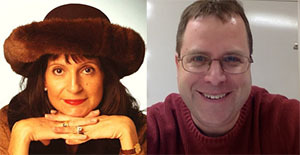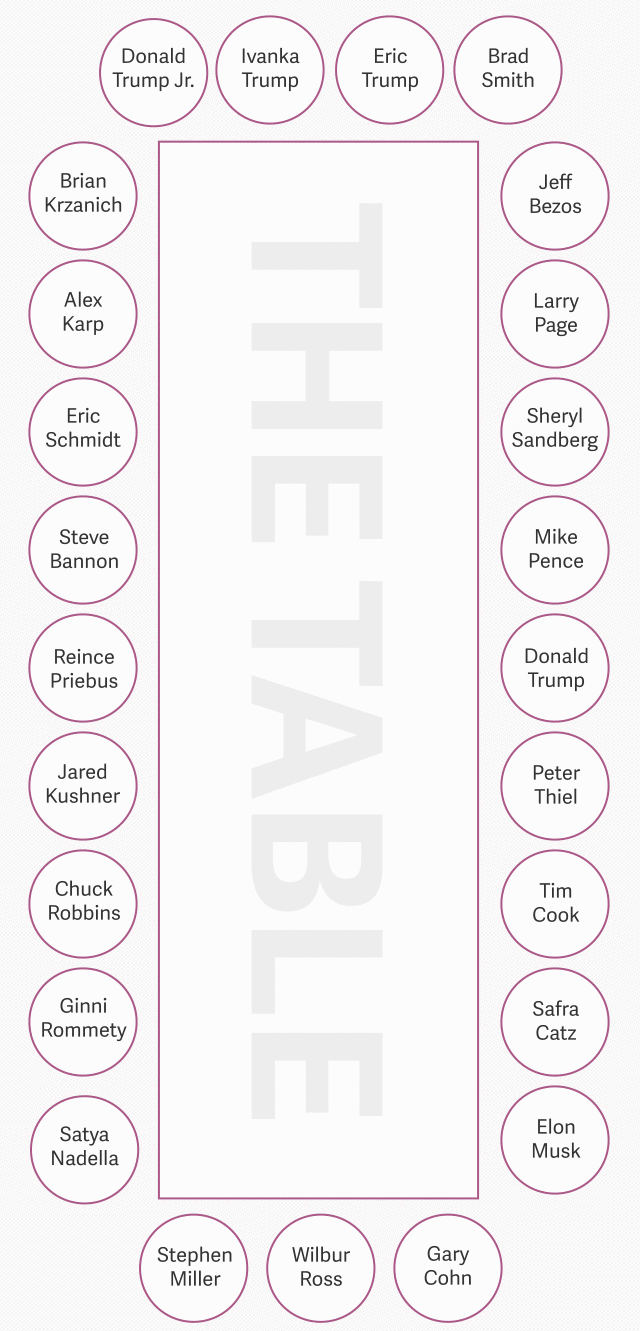 “The Global Search for Education series takes important issues related to global education and gives them context.” — Adam Steiner
“The Global Search for Education series takes important issues related to global education and gives them context.” — Adam Steiner
Diane Ravitch, Howard Gardner, Sir Ken Robinson, Pak Tee Ng, Pasi Sahlberg, Tony Wagner, Yong Zhao, Krista Kiuru, Peter Vesterbacka, Randi Weingarten, Jonathan Jansen, Michael Fullan and Andy Hargreaves, among others, have been chosen for our first
Global Search for Education Top 10 List.We asked Adam Steiner, a technology integration specialist for the Holliston Public Schools in Holliston, Massachusetts and a doctoral researcher at Boston College, to make an assessment of the over 250 interviews we’ve published and give us his view of our top ten articles.Adam is the co-author with Elizabeth Stringer Keefe of a forthcoming book on Universal Design for Learning (UDL) and technology (scheduled release date of March 2015 from Rowman & Littlefield). He joins me to discuss the Top 10 in today’s edition of
The Global Search for Education.
Adam, I like your first selection – my 2012 interview with Diane Ravitch. How have The Global Search for Education articles helped you as an educator?
The Global Search for Education series takes important issues related to global education and gives them context. Given the various threads of my personal and professional life, the interviews have helped to put it all in a broader context and give it a larger meaning.
As a teacher, your 2012 interview with Diane Ravitch, in particular, represents the need for teaching to remain a respected profession. I know that my first few years of teaching were such a challenge and would have been impossible if I felt the community did not respect my work. Diane Ravitch rightly argues that a well-respected teaching profession requires higher expectations for teachers and stricter requirements for entry into the profession.
1. The Global Search for Education: The Education Debate 2012 with Diane Ravitch
 “Diane Ravitch rightly argues that a well-respected teaching profession requires higher expectations for teachers and stricter requirements for entry into the profession.” — Adam SteinerCan I assume that the articles you selected as Nos. 2 and 3 on your list are related to your experience as a technology integration specialist?
“Diane Ravitch rightly argues that a well-respected teaching profession requires higher expectations for teachers and stricter requirements for entry into the profession.” — Adam SteinerCan I assume that the articles you selected as Nos. 2 and 3 on your list are related to your experience as a technology integration specialist?
Absolutely. Over the past five years, my professional focus has shifted from classroom teacher to technology integration specialist. My particular focus has been on the use of assistive technology in partnership with the Universal Design for Learning (UDL) framework to support inclusive classrooms. Singapore is an amazing example of a country that is using technology to help transform its educational system and there is no better person to speak to this than Pak Tee Ng, Professor at the University of Singapore – the best known expert on the Singaporean education system. He emphasizes that Singapore is seeking out uses of technology that transform teaching and not just prop up traditional modes. Tony Wagner continues this theme in my third choice when he talks about technology as a source of pedagogical transformation. In your interview, Tony talks about visiting a school system that had invested tens of thousands in interactive whiteboards in classrooms. Despite the innovative technology, the teaching had not changed – the devices were simply being used as sophisticated test prep tools. As a technology integration specialist, I find myself promoting and supporting the purchase of classroom technology. However, I am also constantly checking to insure that my work is promoting innovative teaching and not just equipment.
2. The Global Search for Education: Got Tech? – Singapore with Pak Tee Ng
3. The Global Search for Education: Education Technology with Tony Wagner
I was pleased that my interview with Yong Zhao made no. 4 on your list. As an education researcher, what interested you most about this article?
China is on a continual journey of self-examination of its own schools. There is no better guide in this irony than Yong Zhao, University of Oregon Professor and expert on the Chinese educational system. Dr. Zhao emphasized efforts to lessen the gap between wealthy and poor, powerful and powerless, a topic that has huge implications for the United States and our disturbing inequality. He described a pernicious selection of students into a hierarchical arrangement of schools and a need for a broad cultural shift that would measure the value of a school intrinsically rather than in comparison to other schools. The growing emphasis on large-scale standardized testing in the US would seem to run contrary to this effort.
4. The Global Search for Education: Focus on China with Yong Zhao
 “Jonathan Jansen’s South African experience has powerful ramifications for any country looking to make significant reform. He emphasizes the importance of approaching reform with an eye toward systemic change rather than tackling issues in a piecemeal fashion.” — Adam SteinerNo. 5 on your list – a look at Finland’s education system for inspiration in the Global Search series.
“Jonathan Jansen’s South African experience has powerful ramifications for any country looking to make significant reform. He emphasizes the importance of approaching reform with an eye toward systemic change rather than tackling issues in a piecemeal fashion.” — Adam SteinerNo. 5 on your list – a look at Finland’s education system for inspiration in the Global Search series.
I had the privilege to hear Dr. Pasi Sahlberg speak at Boston College and this interview illuminated several of the topics he discussed. Three points hit home with me. First, Finland has made a massive investment in teaching such that the profession is now one of the most sought-after jobs in the country. Second, there is an emphasis on equitable schooling that reaches every child rather than in boutique private or quasi-public schools. Third, emotional well-being is valued over test results. My fear is that the United States is moving in precisely the opposite direction on all three fronts.
5. The Global Search for Education: More Focus on Finland with Pasi Sahlberg
I was very pleased that you nominated my interview with Jonathan Jansen for the Top 10.
Jonathan Jansen’s South African experience has powerful ramifications for any country looking to make significant reform. He emphasizes the importance of approaching reform with an eye toward systemic change rather than tackling issues in a piecemeal fashion. Jansen also emphasizes the public-private partnership as key to making significant change.
6. The Global Search For Education: Education Is My Right – South Africa with Jonathan Jansen
As a parent, I know fun and learning resonates with you.
Helping my children with their homework, driving them to a soccer or gymnastics practice, or watching them listen to music or draw a picture – sometimes I feel overwhelmed with the many hats I wear, but there have been several interviews in the Global Search series that have helped me to manage these competing needs. This sixth interview I selected looked at technology and “fun learning” with several Finnish education leaders, including Krista Kiuru, Finnish Minister of Education and Science, and Peter Vesterbacka and Sanna Lukander of Rovio Entertainment, the creators of Angry Birds. We need to find ways for our kids to learn and to discover in fun and interesting ways. This is a challenge given the nature of elementary school education these days. How to find time for “fun learning” when there is so much math and literacy-focused homework to do?
7. The Global Search for Education: Fun and Learning with Krista Kiuru, Peter Vesterbacka, Sanna Lukander
 “Howard Gardner covers a great deal of territory in this interview, from the role of the federal government in education to teacher education to charter schools, but what stands out most to me is his statement: “…education in the arts needs no justification in terms of ‘transfer’ to other subjects or to its generation of wealth; it is a ‘good’ in itself.” — Adam SteinerHoward Gardner had more to do with inspiring the Global Search series than he will ever know – tell me about no. 8 on your list.
“Howard Gardner covers a great deal of territory in this interview, from the role of the federal government in education to teacher education to charter schools, but what stands out most to me is his statement: “…education in the arts needs no justification in terms of ‘transfer’ to other subjects or to its generation of wealth; it is a ‘good’ in itself.” — Adam SteinerHoward Gardner had more to do with inspiring the Global Search series than he will ever know – tell me about no. 8 on your list.
8. The Global Search for Education: The Education Debate 2012 with Howard Gardner
Howard Gardner covers a great deal of territory in this interview, from the role of the federal government in education to teacher education to charter schools, but what stands out most to me is his statement: “…education in the arts needs no justification in terms of ‘transfer’ to other subjects or to its generation of wealth; it is a ‘good’ in itself.” This is a powerful reminder that we need to build in time for our kids to enjoy the arts. If schools are going to put primary emphasis on English and math skills, this becomes even more important.
We couldn’t have a Top 10 list without Sir Ken Robinson.
You had an amazing conversation with Sir Ken Robinson, in which he describes the arts as a discipline in the same way that math, science and English are disciplines. It adds another layer to Howard Gardner’s argument about the importance of the arts. Sir Ken also emphasizes the value of approaching art and other subjects in an interdisciplinary fashion.
9. The Global Search for Education: More Arts Please with Sir Ken Robinson
Michael Fullan and Andy Hargreaves have contributed so much great work to this series – why did you select this particular interview about the teaching profession?
For me, teaching has been too often a lonely profession. I have felt that my development as a professional was distinctly separate from the needs of my colleagues. This Global Search interview, in particular, addressed this loneliness and the need to improve the profession of teaching with a collective, collaborative approach. It approached the topic from the practical side by engaging Randi Weingarten, President of the American Federation of Teachers, and from the scholarly side by connecting with Andy Hargreaves and Michael Fullan, professors and researchers on the cutting edge of educational change.
10. The Global Search for Education: In Search of Professionals – Part 1 with Michael Fullan, Andy Hargreaves, Randi Weingarten
 C. M. Rubin and Adam Steiner
C. M. Rubin and Adam Steiner
 Image Credit: Quartz.
Image Credit: Quartz.






